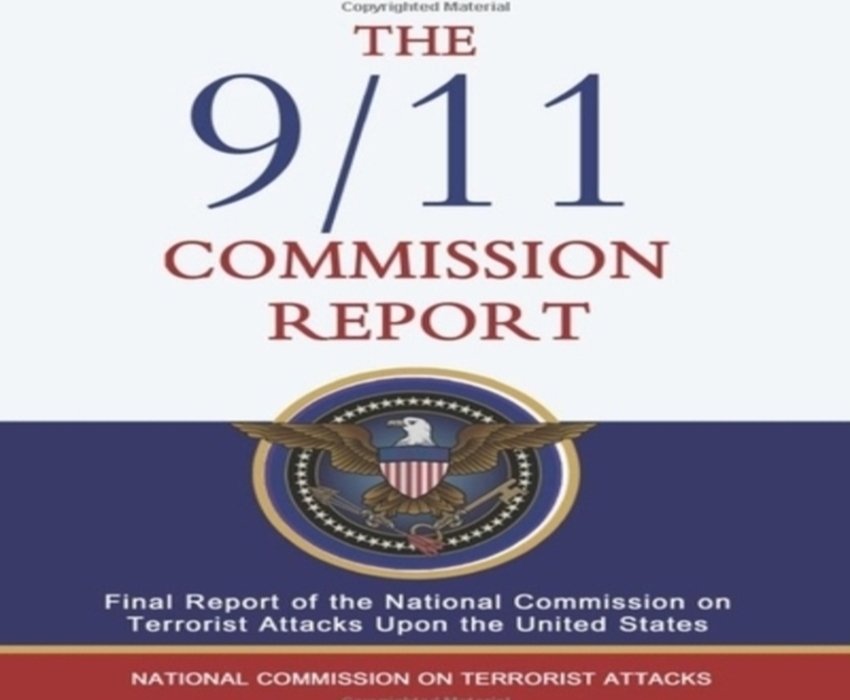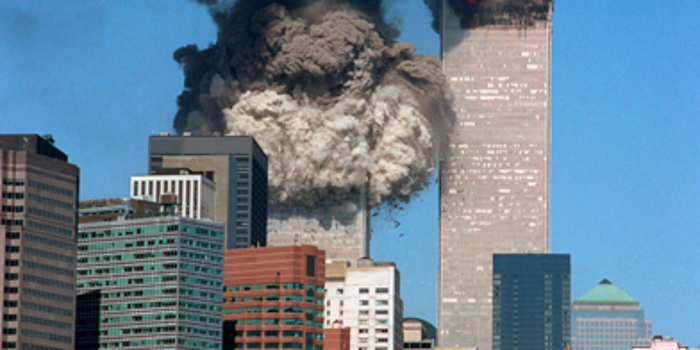Selective Memory: The Carefully Excised “WHY” of the 9/11 Attacks

Selective Memory: The Carefully Excised “WHY” of the 9/11 Attacks
American media won’t speak its name – “Islamist terrorism’ – but the historic 9/11 Commission Report does and always will
by Todd Bensman
September 15, 2021
“But the enemy is not just ‘terrorism,’ some generic evil. This vagueness blurs the strategy. The catastrophic threat at this moment in history is more specific. It is the threat posed by Islamist terrorism – especially the al Qaeda network, its affiliates, and its ideology.” – The 9/11 Commission Report, p. 362, July 2004
In the American media’s impressive production output of 20th anniversary 9/11 retrospectives this past week, a grand omission is now glaring: Why “they,” the hijackers and al Qaeda, did it. The short answer is: they did it out of religious conviction to their interpretation of Islam.
A case in point for selective media amnesia can be found in this story based on the Flight 93 recovered cockpit recordings. It reconstructed heart-rending recollections of conversations between loved ones on the ground and the 40 bravely insurgent passengers. Largely omitted in commemoration coverage was any reminder that the same recordings offered a glimpse into a hijacker’s state of mind at an authentic moment of truth. Nine times over that flight’s final six seconds before it nosedived into a Shanksville, Pa. field, from 10:03:02.7 to 10:03:09.2, he chanted:
“Allah is the greatest! Allah is the greatest! Allah is the greatest! Allah is the greatest! Allah is the greatest! Allah is the greatest! Allah is the greatest! Allah is the greatest! Allah is the greatest!”
Only by the most acrobatic of intellectual yoga did major U.S. media dodge civic obligation to remember and explore the religious motive that drove the 9/11 hijackers to mass murder. Media outlets like the New York Times, the Washington Post, USA Today, and the majority of major city newspapers and online outlets mostly danced lightly past their duty to remind a younger generation that thousands of Islamist fanatics at home and around the world harbor the very same religious ideology and still endeavor to kill them the next time.
A highly nimble USA Today, for example, pretzel-twisted itself under, over and then around having to mention that motivating religious animus by posting a story with the subhead “Eight influential Muslim Americans discuss how 9/11 and Islamophobia affected life in the U.S. over two decades.” CBS News engaged in similar misdirection with a piece titled “Muslim Americans still face hostility 20 years after 9/11.” A CNN story containing no evidence leads viewers anywhere else possible with the headline: “Too many US Muslim children dread 9/11 every year.”
Stories of anti-Islamic hate crimes, when they are true, deserve to be told, of course. But the dereliction of duty to complete the more complicated, accurate portrait, in which 9/11’s perpetrators acted out of their perceived religious duty, short-circuits the opportunity to explain how that same motivation has survived and thrived around the world under different brand labels, and remains a potent threat.
Fortunately, the 567-page 9/11 Commission Report, the U.S. government’s three-year-long, bipartisan investigative effort to provide as full a possible historic account of how the attacks succeeded – and why the perpetrators carried them out – exists for moments like these. The report was authored by the National Commission on Terrorist Attacks Upon the United States. That was an independent, bipartisan group created on Nov. 27, 2002 by an act of Congress signed by President George W. Bush to study and then hold hearings about what happened.
To be sure, the 9/11 Commission report has its detractors who have quibbled with its recommendations, analysis, and research methodology. But the document stands factually unscathed with its gravitas intact. It remains in public libraries, on official government websites, and was quoted widely (if selectively) in the media commemoration coverage. Congress carried many of the report’s recommendations through to major legislation. The report is still frequently cited in academic works and books as definitive history of the attacks, along with its conclusions about the motivating ideology behind them, which have never been overturned.
If there was ever a time to let the 2004 government tome do its job, it is now, when media gatekeepers regard essential truths as too politically unsuitable for American minds. The following are excerpts from the 9/11 report about WHY they attacked.
Excerpts to Remember for the Now and Future
- “…Usama Bin Ladin and other Islamist terrorist leaders draw on a long tradition of extreme intolerance within one stream of Islam (a minority tradition), from a least Ibn Taimiyyah, through the founders of Wahhabism, through the Muslim Brotherhood, to Sayyid Qutb. That stream is motivated by religion and does not distinguish politics from religion, thus distorting both. It is not a position with which Americans can bargain or negotiate. With it there is no common ground— not even respect for life— on which to begin a dialogue. It can only be destroyed or utterly isolated.”
What to Do? A Global Strategy, Reflecting on a Generational Challenge, Defining the Threat, page 362.
- “Bin Ladin also relies heavily on the Egyptian writer Sayyid Qutb. A member of the Muslim Brotherhood executed in 1966 on charges of attempting to overthrow the government, Qutb mixed Islamic scholarship with a very superficial acquaintance with Western history and thought… He claimed that the world was beset with barbarism, licentiousness, and unbelief (a condition he called Jahiliyya, the religious term for the period of ignorance prior to the revelations given to the Prophet Mohammed). Qutb argued that humans can choose only between Islam and Jahiliyya… All Muslims – as he defined them – therefore must take up arms in this fight. Any Muslim who rejects his ideas is just one more nonbeliever worthy of destruction. Bin Ladin shares Qutb’s stark view, permitting him and his followers to rationalize even unprovoked mass murder as righteous defense of an embattled faith.”
The Foundation of the New Terrorism, Bin Ladin’s World View, page 51.
- “Many Americans have wondered, “Why do ‘they’ hate us?’ Some also ask, ‘What can we do to stop these attacks?’
Bin Ladin’s grievance with the United States may have started in reaction to specific U.S. policies but it quickly became far deeper. Al Qaeda’s answer was that America should abandon the Middle East, convert to Islam, and end the immorality and godlessness of its society and culture: ‘It is saddening to tell you that you are the worst civilization witnessed by the history of mankind.’ If the United States did not comply, it would be at war with the Islamic nation, a nation that al Qaeda’s leaders said, ‘desires death more than you desire life.’ Page 51.
- “How did Bin Ladin – with his call for the indiscriminate killing of Americans— win thousands of followers and some degree of approval from millions more? The history, culture, and body of beliefs from which Bin Ladin has shaped and spread his message are largely unknown to many Americans. Seizing on symbols of Islam’s past greatness, he promises to restore pride to people who consider themselves the victims of successive foreign masters. He uses cultural and religious allusions to the holy Qur’an and some of its interpreters. His rhetoric selectively draws from multiple sources – Islam, history, and the region’s political and economic malaise.”
2.2 Bin Ladin’s Appeal in the Islamic World, page 48.
- “By 1998, Bin Ladin had a distinctive appeal, as he focused on attacking America. He argued that other extremists, who aimed at local rulers or Israel, did not go far enough. They had not taken on what he called ‘the head of the snake.'” Page 54.
- “In February 1998, the 40-year-old Saudi exile Usama Bin Ladin and a fugitive Egyptian physician, Ayman al Zawahiri, arranged from their Afghan headquarters for an Arabic newspaper in London to publish what they termed a fatwa issued in the name of a ‘World Islamic Front.’ Claiming that America had declared war against God and his messenger, they called for the murder of any American, anywhere on Earth, as the ‘individual duty for every Muslim who can do it in any country in which it is possible to do it.’ Three months later, when interviewed in Afghanistan… Bin Ladin enlarged on these themes. He claimed it was more important for Muslims to kill Americans than to kill other infidels. ‘We believe that the worst thieves in the world today and the worst terrorists are the Americans. Nothing could stop you except perhaps retaliation in kind. We do not have to differentiate between military or civilian. As far as we are concerned, they are all targets.”
The Foundation of the New Terrorism, A Declaration of War, page 47.
- “Our enemy is twofold: al Qaeda, a stateless network of terrorists that struck us on 9/11; and a radical ideological movement in the Islamic world, inspired in part by al Qaeda, which has spawned terrorist groups and violence across the globe. The first enemy is weakened…The second enemy is gathering, and will menace Americans and American interests long after Usama Bin Ladin and his cohorts are killed or captured. Thus our strategy must match our means to two ends: dismantling the al Qaeda network and prevailing in the longer term over the ideology that gives rise to Islamist terrorism…The present danger is Islamist terrorism.”
What to Do? A Global Strategy, page 363.
- “The small percentage of Muslims who are fully committed to Usama Bin Ladin’s version of Islam are impervious to persuasion. Muslims themselves will have to reflect upon such basic issues as the concept of jihad, the position of women, and the place of non-Muslim minorities. The United States can promote moderation, but cannot ensure its ascendancy. Only Muslims can do this.” Engage the Struggle of Ideas, page 375.
The American media does a disservice to the republic in hop-skipping past the religious “why” behind 9/11. In doing so, it fails to serve the time-tested wisdom that those who forget the past are doomed to repeat it. Protecting a new generation of Americans from knowing the why of 9/11 portends another failure to guard against “Islamist terrorism” and a return to fatal pre-9/11 naiveté and vulnerability.
Todd Bensman is a 23-year former investigative newspaper reporter and government intelligence official with master’s degrees in journalism and security studies. His new book is America’s Covert Border War: The Untold Story of the Nation’s Battle to Prevent Jihadist Infiltration.
Copyright © 2021. Investigative Project on Terrorism. All rights reserved.
#####################
















